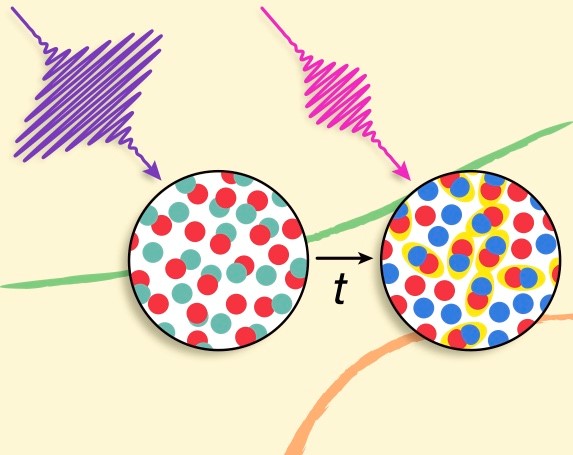 |
Strong interactions among fermionic particles in condensed matter are known to foster rich phase diagrams, where distinct microscopic mechanisms compete with one another. In this work, we reveal the emergence of two competing instabilities in a paradigmatic model system, i.e., a Fermi gas of ultracold atoms. While it has been established that a cold gas of atoms subject to strong interactions is unstable towards forming pairs of oppositely oriented spins, a long-standing issue is whether strong repulsion can trigger fermions to build up correlations and develop ferromagnetic order. Here, we probe the out-of-equilibrium dynamics of a repulsive Fermi gas with unprecedented time resolution, exploiting a pump-probe spectroscopic technique akin to the ultrafast spectroscopy used in the solid state. In this way, we witness the real-time growth of spin anti-correlations in the gas driven only by repulsive interactions. Their interplay with the tendency of fermions to pair up is found to persist over long time scales, giving rise to a novel, emulsion-like metastable state unforeseen thus far. These findings represent an important testbed for current and future theories, while they also afford exciting perspectives for accessing elusive regimes of fermionic superfluidity. A. Amico, F. Scazza, G. Valtolina, P. E. S. Tavares, W. Ketterle, M. Inguscio, G. Roati, and M. Zaccanti See also the Physics Viewpoint by L. LeBlanc: L. LeBlanc |
LAST NEWS
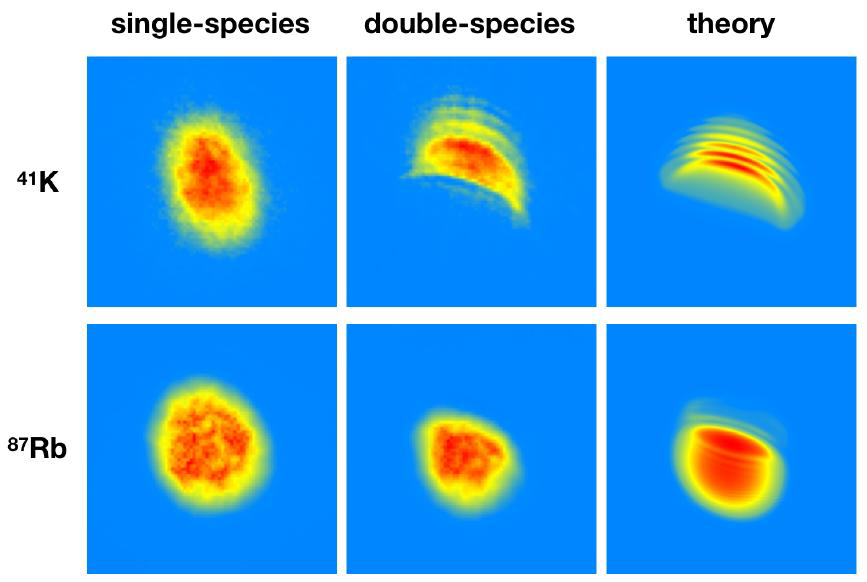 |
We report on the production of a 41K−87Rb dual-species Bose-Einstein condensate in a hybrid trap, consisting of a magnetic quadrupole and an optical dipole potential. After loading both atomic species in the trap, we cool down 87Rb first by magnetic and then by optical evaporation, while 41K is sympathetically cooled by elastic collisions with 87Rb. We eventually produce two-component condensates with more than 105 atoms and tunable species population imbalance. We observe the immiscibility of the quantum mixture by measuring the density profile of each species after releasing them from the trap. A. Burchianti, et al. |
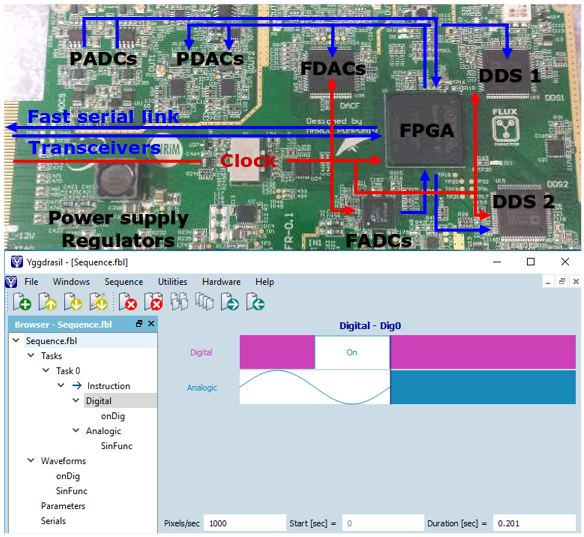 |
Modern experiments with complex quantum systems should ideally be managed by a control apparatus capable of carrying out complex tasks, such as self-optimization procedures and realization of feedback loops acting on different channels. To achieve these goals, we developed a novel control system formed by both a hardware and a software part. Specifically, the hardware is based on a net of interconnected FPGAs able to process incoming and outgoing data directly on board, whereas the software is designed to exploit the capabilities of such a general hardware platform and to be easily expanded to manage other devices or instrumentation changes. E. Perego, et al. |
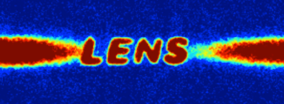 |
We have implemented a new high-resolution imaging system, that also makes it possible to imprint onto the atomic cloud arbitrary optical potentials created with a digital micromirror device (DMD). This will allow us to study quantum transport of fermionic gases in arbitrary geometries -- from the non-interacting limit to the strongly correlated regime, from the clean to the disordered case. An upgrade of the setup for the production of quasi-two-dimensional clouds is now under way, stay tuned! |
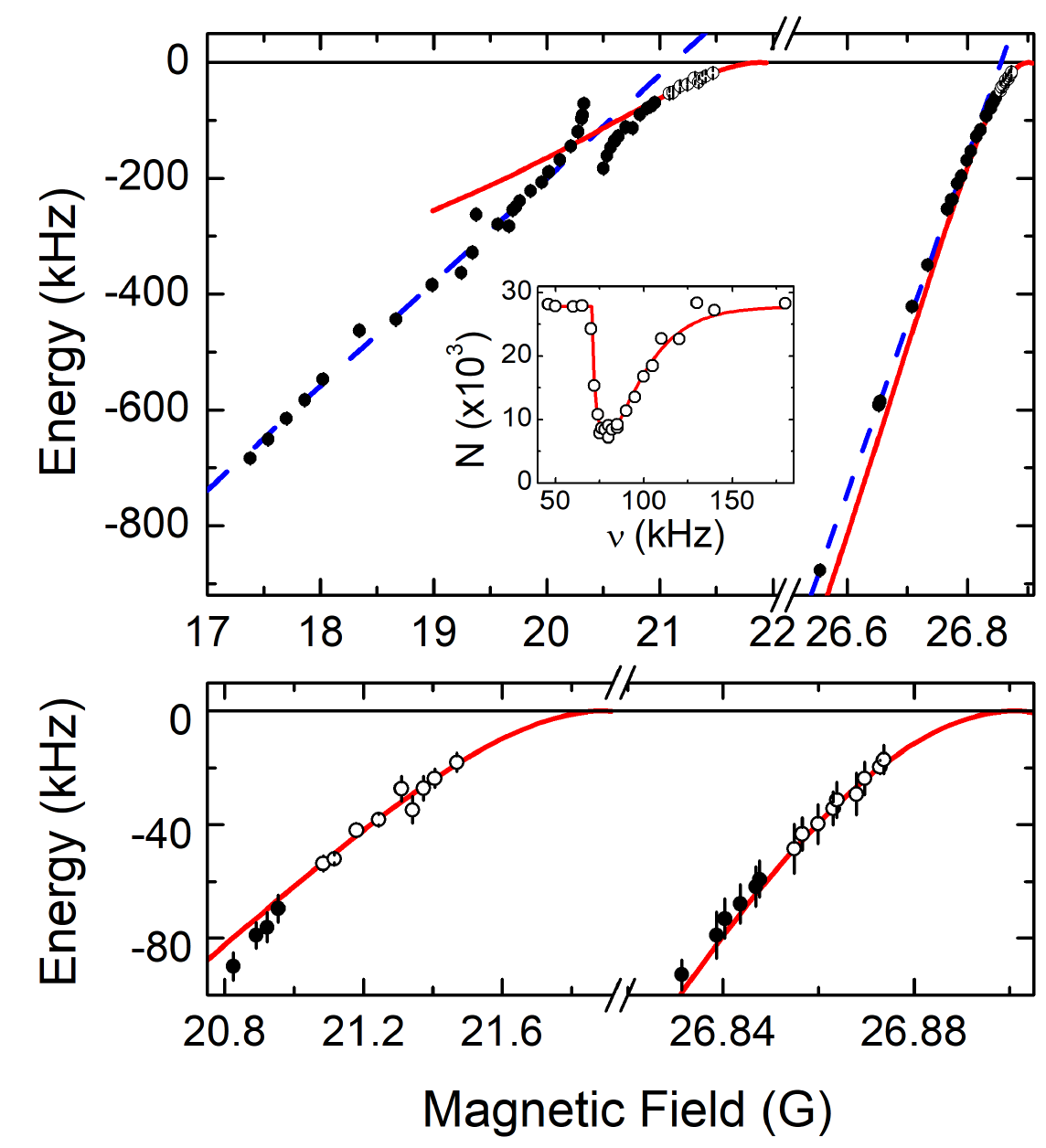 |
We have characterized the scattering properties of ultracold 162Dy atoms for magnetic fields between 6 and 30 G. In addition to the typical chaotic distribution of narrow Feshbach resonances in Lanthanides, we have discovered two rather isolated broad features. A characterization using the complementary measurements of losses, thermalization, anisotropic expansion and molecular binding energy points towards resonances of predominant s-wave character, with dimensionless strength s=0.5(3). Such resonances will ease the investigation of quantum phenomena relying on the interplay between dipole and contact interactions. E. Lucioni, et al. |
